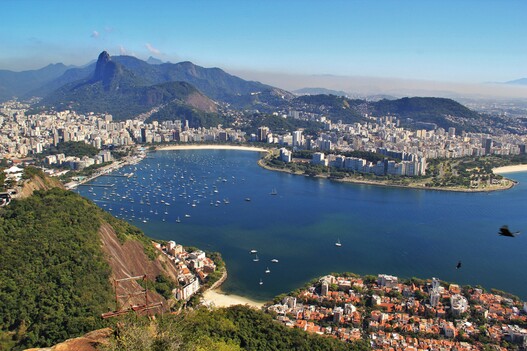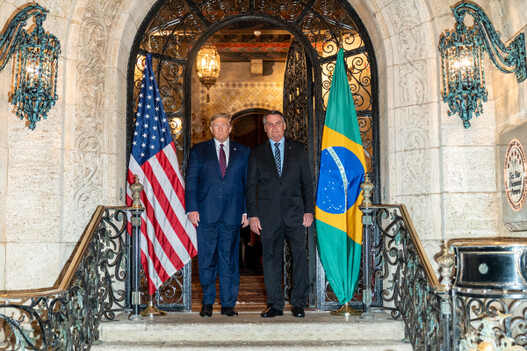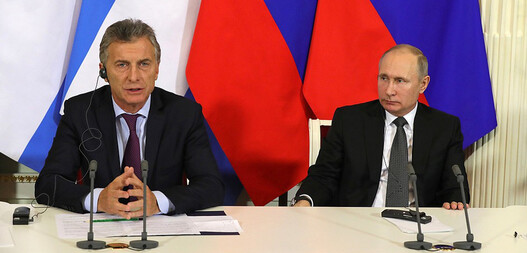Latin America
International Relations > Regions
Latin America is a vast macro-region, but while its situation is improving in both economic and socio-political terms, it still has to face numerous challenges.
Today's economic outlook still suffers from the effects of past choices. States often applyed fiscal repression on the agricultural sector to favour industrialization and import substitution policies to protect the local industry from foreign competition. While the Initial effects were positive to some degree (an average GDP growth by 2.5% between 1950 and 1973) the the situation changed in the '70s.
Insufficient tax income and high levels of public spending (mostly on subsidies) made the public debt grow, and corruption further worsened the situation. Printing more money was the typical solution, but combined with low industrial output it only resulted in soaring inflation. The dramatic increase in oil prices after the 1973 oil shock further increased government spending. When the US raised its interest rate to curb inflation, many highly-indebted Latin American states had to declare bankruptcy. At that point South America entered in the 'Lost Decade' (1973-1987). Open markets and countering the recession by exporting more was not possible, since decades of protectionist policies had resulted into inefficient large state-owned or subsidized private companies ruled by the elite that were unprepared to face international competition. The average GDP growth dropped to 0.8%.
The situation started changing with the end of the Cold War. Democracy gradually spread in the region, and following the 'Washington consensus' the governments implemented market-oriented reforms to limit inflation, reduce debt and attract foreign investments. Still, changing decades-long economic structures and solving the widespread social problems was difficult. Latin America sustained quite well the 2008 global financial crisis, and now it is moving towards a new phase of development.
However, many problems remain. Economic reforms need to continue. Many people live in poverty in large favelas in the periphery of large cities. Criminality rates are high. This assumes transnational dimensions with narco-traffic. Many guerrilla movements are also active. Other issues include the delicate matter of ethnic minorities and environmental protection. These are often linked, as economic exploitation is damaging areas where native peoples live.
In this context, the international asset of the region is changing. The main regional power is with no doubt Brazil, which is playing an increasingly important role in South America and worldwide. Venezuela, which maintains a staunch anti-American position, is another important country due to its rich oil reserves; but has plunged into a severe economic, social and political crisis that is unlikely to be solved anytime soon.
Many external powers are present in Latin America. The United States remain an important actor, and the Monroe Doctrine (which considers the Western Hemisphere as America's exclusive zone of influence) is still applied in spite of declarations by then-Secretary of State John Kerry. China is also becoming more active to access the continent’s resources and its markets. In this logic, it is promoting several infrastructure projects. A Chinese billionaire, who has probably ties Beijing's authorities, is sponsoring the Nicaragua Canal as an alternative the Panama one. For similar reasons, India is also present in Latin America, albeit to a far lesser degree than China. Russia has longstanding ties with the region, where it seeks partners (like Cuba and Venezuela) to counter the US. Finally, the European Union maintains cultural ties with the area, it supports democratization and is an important investor; even though the trade relations are still relatively limited.
In conclusion, Latin America is in a delicate transition phase spanning over many domains; and local governments will need to carefully manage this process.
Mexico: A Regional Power?
 Mexico is a vast country with a large population and a good economic potential.
Mexico is a vast country with a large population and a good economic potential.However, its development is severely hampered by widespread corruption and by the activities of the powerful drug cartels. This is hampering Mexico’s growth and is preventing it from becoming a regional power.
Moreover, the recent troubles in the relations with the US are also slowing its rise.
Photo credit: Mexico Flag / Bandera de Mexico, Esparta Palma, published under Creative Commons Attribution 2.0 Generic (CC BY 2.0).
Geopolitics of Brazil

Brazil is South America’s emerging power.
It is the largest and most populous country in the continent; and it benefits from a favorable geographic position, important natural resources and a growing economy. As such, it is taking a more active international role both in the region and beyond.
Yet, it must also face notable challenges; notably corruption, criminality, inequality and others; all of which may undermine its rise as a great power.
Bolsonaro in Brazil: Good News for the US, Setback for China
 Brazil is South America's most important country, and Jair Bolsonaro will soon be the country's next President.
Brazil is South America's most important country, and Jair Bolsonaro will soon be the country's next President. This will have international repercussions, also because Bolsonaro shares very similar views with US President Donald Trump. As such, his election is good news for (Trump's) America; but bad news for its rivals, notably China.
If you're interested, read my article on Geopolitical Monitor (no subscription required).
Photo credit: President Trump Meets with President Bolsonaro (49646162361).jpg, The White House, published under public domain.
Argentina’s Finances Are Hamstringing Its International Role (Again)

While the world's mediatic attention was all focused on Iran and North Korea, the recent financial troubles in Argentina went almost unnoticed. Still, the country had to raise its interest rates three times in a week to a 40% rate in an attempt to counter the rapid depreciation of the peso, and asked the IMF for assistance.
Is another financial crisis looming in Argentina? Difficult to say, but one thing is sure: its macroeconomic instability risks once more to undermine its international role. Yet, its natural resources (natably vast shale oil & gas deposits) may allow Argentina to boost its economy and consequently its geopolitical influence in South America.
